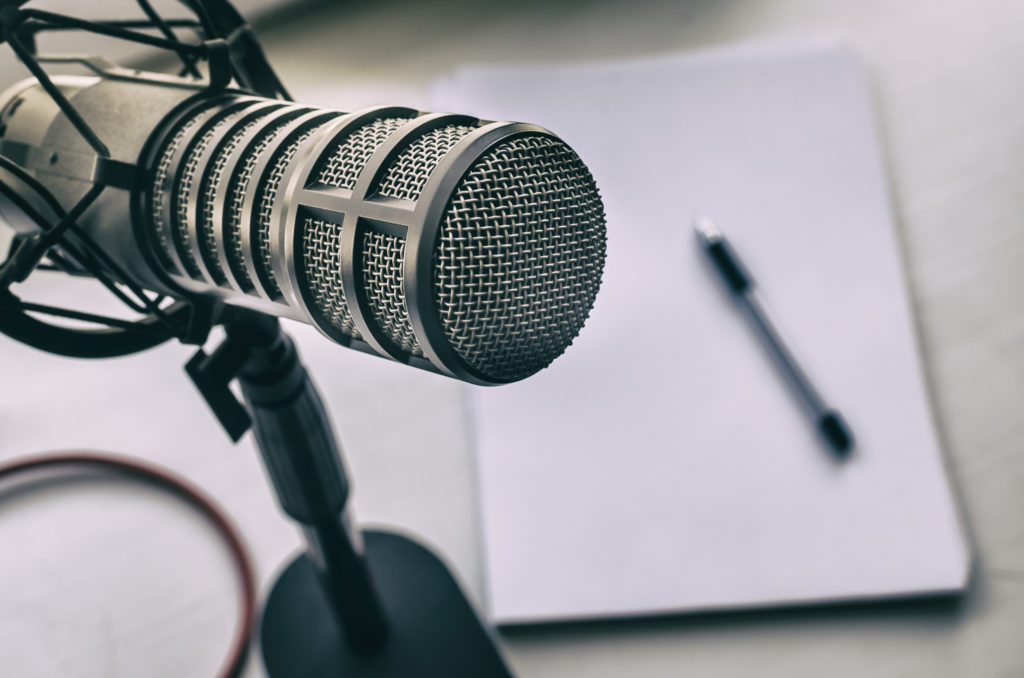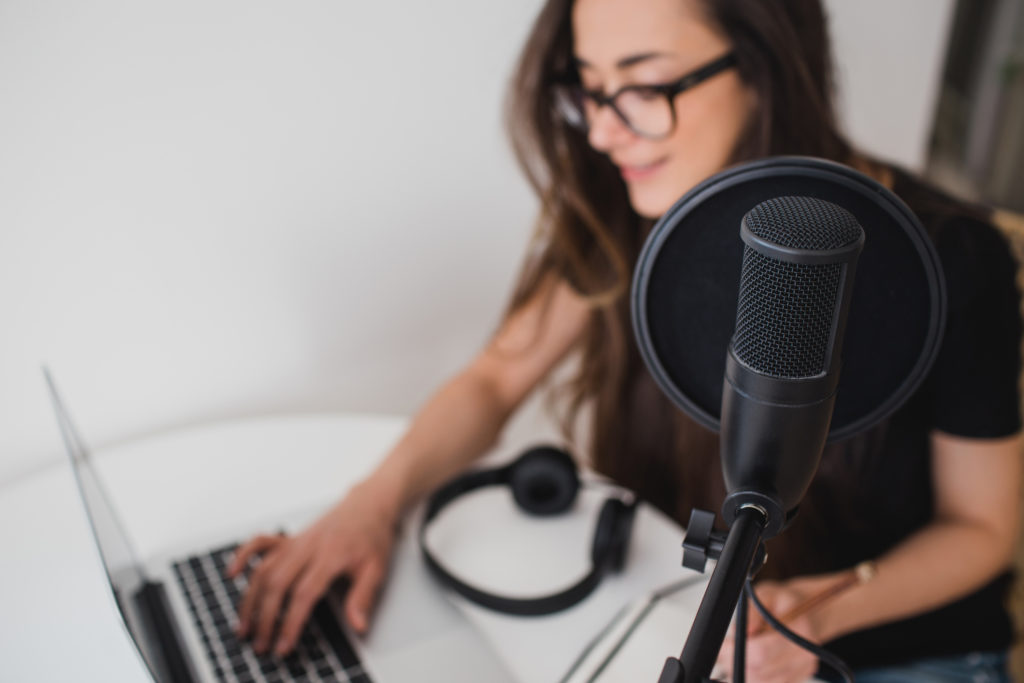5 Ways to Be a Great Podcast Guest

For years, media interviewees have lamented the relative superficiality of the most popular media formats, which allow for only a passing glance at a complex topic. The typical edited media interview – whether for television, print, online, or terrestrial radio – features short quotes and sound bites, most lasting only a few seconds.
Enter podcasts. Into that void of thoughtful media formats, podcasts often allow for a longer and more thorough exchange. That’s a gift for anyone who’s ever wished they could flesh out more completely their personal story or corporate philosophy, or the ideas that drive their work.
Precisely because podcasts are so different from other forms of media, it’s important to understand the key differences between, say, an edited print interview and an extended podcast conversation.
According to Podcast Insights, there are 1,750,000 podcasts in the United States and 43 million episodes as of January 2021. Those millions of episodes require proven guests. They need you. You want them. If you master the format, you’ll have more opportunities to share your story, more completely, than ever before.
So, let’s help you get there. Before delving into the key techniques to remember while being interviewed for podcasts, it’s worth distinguishing how podcasts are different from traditional forms of media:
- Many podcasts are not broken into segments, like sports or weather updates on terrestrial radio. Nor does a defined time slot dictate the show’s length. An interview can flow and run 20 minutes or 45 minutes. The podcast host has the freedom to decide how long or short each episode needs to be.
- Podcasts are not necessarily aimed at a broad audience. Podcasts tend to cover a niche interest, hobby, or topic; look at a well-known subject in a new light; or take a laser focus to a subject covered more broadly by traditional media. That means episodes are often a deep dive and guests are there to help plumb the depths.
- Audiences often don’t surf for podcasts the way they might flip to different radio stations. Most people subscribe to a podcast and download the episodes, meaning the show follows the audience, who listen to it wherever, whenever, and however they want.
- The niche focus and “on-demand” delivery tend to breed a strong sense of community, intimacy, and familiarity that leads to an unusually strong bond between the host and the audience.
5 Ways to Be a Great Podcast Guest
1. Know The Show. Listen to a few shows to understand the show’s tone and the host’s style. This advice holds when preparing for any type of interview – but in the case of podcasts, which are more intimate and relationship-driven (among the host, audience, and guest), audience members are particularly protective of the format and want guests to play along. You will be better perceived and heard if you embrace the format and fully engage in the discussion. That often means the conversation will delve into more personal territory than the typical interview.
2. Prepare for the Personal. For most media interviews, spokespersons will be tapped for their expertise. You might be interviewed to offer expert analysis, comment on a breaking news story, or discuss the news your organization has just released. The podcast you’re appearing on may want that, too – but others may also want to explore more personal questions. As examples:
-
-
- How did you come to be involved in this topic?
- How did the idea come to you?
- Who were your influences?
- Where did you grow up?
- Were your parents involved in similar work?
- How did the place you were raised influence your thinking?
- What failures did you encounter along the way? Did they make you feel dejected? Did you ever consider giving up?
- When did you know this was going to work?
- What has surprised or upset you the most?
-
Therefore, unlike most media interviews, you might develop messages related not only to your topic, but also about your personal narrative.
Here’s an example. If you’re the co-founder of a tech startup in the cryptocurrency space, you would typically create messaging around the existing cryptocurrency market, the problem your product will solve, how your product fits into the existing marketplace, and how it will make the lives of your customers easier. But you should create a parallel set of messaging, too, that reflects the more personal questions you may be asked.
In the podcast below, Guy Raz, the creator and host of popular podcasts including “How I Built This” and “The Rewind,” offers insight on how he approaches the personal during an interview on another popular podcast program, “The Tim Ferriss Show.” Not every show dives this deep, but it gives a sense of the nature of podcast interviews. The exchange runs from about 5:30 to 8:11.
3. Get Your Key Messages Out Early. When interviewing for terrestrial radio, it’s important to return to your messages and proof points often. Terrestrial radio has a high drop-in/drop-out rate – one listener might turn on his car radio halfway through your interview and listen until the end; another may arrive at her destination just a few minutes after it begins. Because you don’t know when during your segment people will tune in – and that many people will only hear a portion of your interview – it’s important to come back to your messages often.
In contrast, people listen to podcasts sequentially. You can be guaranteed that they’re hearing the opening minute or two – but not that they’ll make it to the end. If you get your key messages out toward the beginning, you can be assured that virtually any listener who clicked “play” will hear them.
That doesn’t mean you can ignore your messages entirely as you continue the conversation – but you can be a bit looser than you might be for a more traditional media format, particularly if the podcast’s emphasis is as much on the personality as the product. Of course, getting to your messages early needs to come across as unforced – so look for the first natural opportunity rather than manufacturing a false moment that comes across as off-putting.
4. Expand Your Story Length. Media interviews benefit from concrete examples, case studies, and anecdotes. But, given the relative brevity of most media quotes, they must be kept short – somewhere between 5-30 seconds, depending on the format.
Podcasts allow more breathing room. Take that story you’ve been truncating and add the details you’ve too often had to leave on the cutting room floor. As opposed to 30 seconds to offer a response, you have 60 or 90 seconds (and occasionally more).
In the podcast below, in all of two-and-a-half minutes or so (5:11 to 7:49), scorpiologist Dr. Lauren Esposito reveals her personality, the uniqueness of her profession, offers descriptive detail of what made her turn to science, and tells her story in a way that keeps you listening on this episode of the podcast “Ologies,” hosted by Alie Ward.
5. Sell Yourself, Judiciously. You run a business, offer a service, have published a book, advocate an approach to a particular issue, want to impart knowledge, or seek change. How heavily should you sell it? Pushing a product or service is often frowned upon during podcast interviews. A great podcast guest refrains from the hard sell (a passing mention is okay) and instead relies upon their expertise to persuade the audience that they may have solutions to their challenges and ways of getting involved with their causes. Even better, provide the host with your call to action in advance, and let them do the selling for you.

Before we sign off …
A few final words of advice: Make sure you have the proper recording space and tech gear. Checking with the host is one of the quickest and easiest ways to assess if you are covered. You also can learn more about setting up your space here. It’s best to do this well in advance of the interview so you have time to purchase, set up, and test any equipment.
You’ll want to check if the show also is livestreamed or videotaped. Here are a few tips to prepare your recording space for an “on-air” appearance.
Finally, practice makes perfect. Seek opportunities to appear on podcasts that align with your personal style, key messages, and target audience. Each appearance is a chance to refine your skills, gain confidence, and reach a broader audience.


